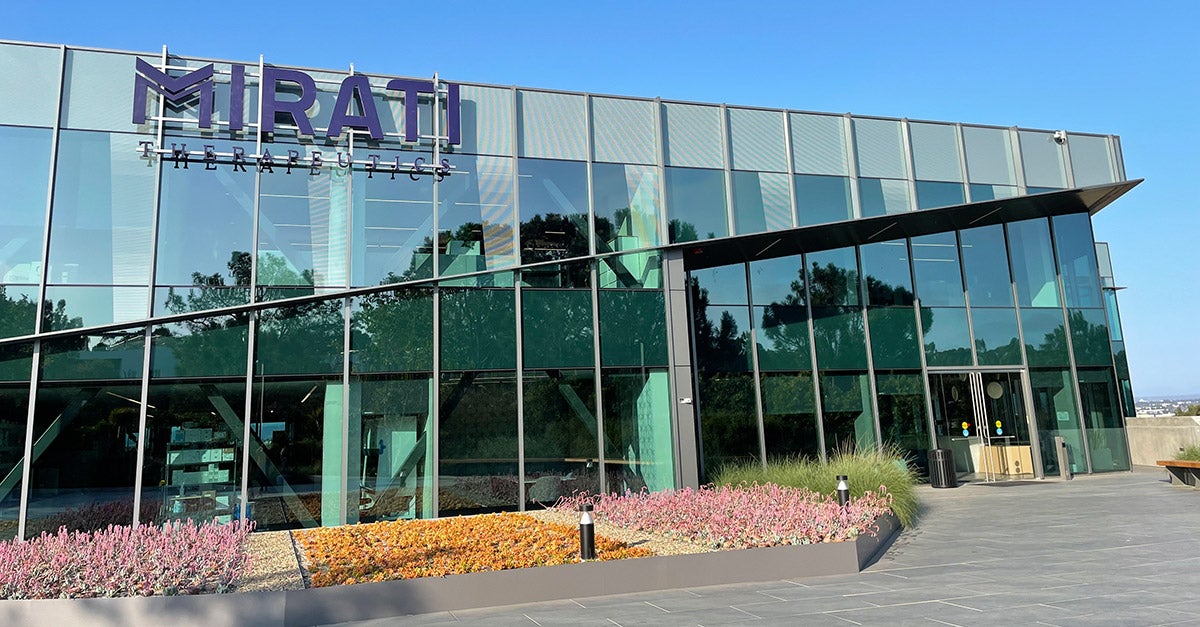Stories
In exploration of the next generation of precision oncology
ithin the past two decades, cancer treatment strategies have become more precise due to our increased understanding of the biological and genetic drivers of cancer.
The groundbreaking research enabling the targeting of oncogenic drivers, including targets like KRAS which have been challenging for decades, have driven the development of the next generation of cancer medicines but also captured the interest of oncology researchers around the world, including Mirati Therapeutics and many biotech companies within the local San Diego area. Last week, I was fortunate to speak to these advancements and emerging opportunities in personalized cancer treatments at the 17th UC San Diego Moores Cancer Center Industry/Academia Next Generation Precision Oncology Symposium.
During the one-day symposium, researchers gathered to share the latest advancements in precision oncology to further progress this area of research and provide hope for those with cancer and their loved ones. This forum was designed to foster an open discussion of scientific and medical advances while placing an emphasis on the utility of using unpublished research to accelerate data dissemination.

Hosted by UC San Diego Moores Cancer Center, this valuable knowledge exchange is another example of why San Diego has become a hub for cutting-edge science within the biopharma industry and for those who seek to push the boundaries of health care investigation. I was inspired by the progress in precision oncology treatments and the collaboration from the symposium’s participants who shared new insights on targeted treatments, immuno-oncology, biomarker testing and emerging therapeutic strategies.
At the symposium, I provided an update on Mirati’s KRAS oncology pipeline contributing to the latest cancer research showcased at the event. The complex role of KRAS mutations in the pathogenesis of colon cancer and the potential of targeting the KRAS signaling pathway through therapeutic intervention was central to the theme of the symposium. KRAS mutations have been the focus of scientific research for more than 30 years, culminating in the discovery of a KRAS binding pocket enabling the development of KRAS targeted therapies.1 This discovery has driven Mirati’s drug development program for KRAS targeted therapies, inhibiting KRASG12C as well as opportunities to target other KRAS mutant variants and other challenging drug targets.

At Mirati, we have always believed in innovation through collaboration to provide meaningful breakthroughs for patients with hard-to-treat cancers. It was an honor to discuss Mirati’s advancements in KRAS targeted therapies and the latest research occurring within the local San Diego community at this year’s symposium. I look forward to further exploring the future of targeted oncology as we seek to improve the lives of those with cancer.
References
- Ostrem JM, Shokat KM. Direct small-molecule inhibitors of KRAS: from structural insights to mechanism-based design. Nat Rev Drug Discov. 2016;15(11):771-785.


